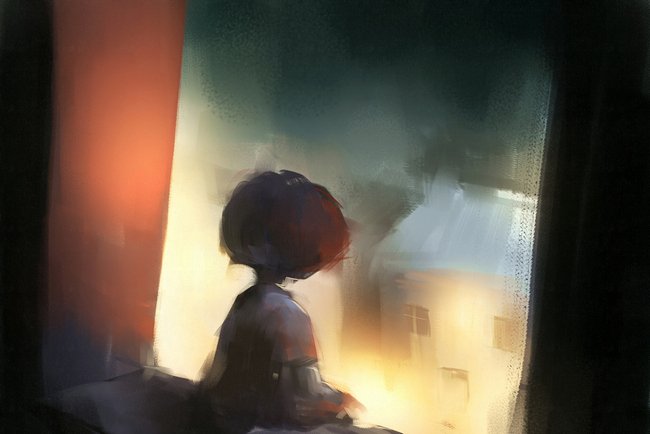
We all face challenges in our lives that can impact our mental health. This is especially true now as we face a myriad of issues from pandemic lockdowns, loss of loved ones, loss of jobs, stress over finances…the list goes on.
The past 10 months have been like no other and dealing with all the mainstream issues can be particularly overwhelming, especially for the younger generations. As we work from home and school remotely, it becomes even more important to remember to find time to take care of our health. Parents are constantly juggling a ton of competing priorities their lives, but mental health is one that should not be ignored.
Here are a few signs that counseling may be needed:
- Trouble coping with everyday tasks
- Excessive worry, anxiety
- Mood swings, impulsiveness
- Trouble concentrating
- Drinking or drugs to dull the pain
- Overwhelming feelings of hopelessness, sadness
Make a Mental Health Resolution
If you haven’t found a reason to smile, let us help you find one.
Our counseling couldn’t be easier to access or more affordable. We take most major insurance types. Yes, we accept insurance. Most of the insurance companies want to help during the pandemic and are waving co-pays. This is a win-win for you. We’ll help you determine your costs and get you started.
It Couldn’t Be Easier
Reach out to us for personalized counseling and therapy via text, video, or phone. Let us help you start the New Year with an important resolution…
YOU and your mental health!!!
ACT Family Counseling
6 Locations to Serve You
Apple Valley | Chino | Rancho Cucamonga | Redlands | Ontario | Victorville
This article first appeared at ACT Teletherapy.com
CLICK HERE to learn more about Teletherapy and how you can connect via phone, text, or video.

Krissy Williams, 15, had attempted suicide before, but never with pills.
The teen was diagnosed with schizophrenia when she was 9. People with this chronic mental health condition perceive reality differently and often experience hallucinations and delusions. She learned to manage these symptoms with a variety of services offered at home and at school.
But the pandemic upended those lifelines. She lost much of the support offered at school. She also lost regular contact with her peers. Her mother lost access to respite care — which allowed her to take a break.
On a Thursday in October, the isolation and sadness came to a head. As Krissy’s mother, Patricia Williams, called a mental crisis hotline for help, she said, Krissy stood on the deck of their Maryland home with a bottle of pain medication in one hand and water in the other.
Before Patricia could react, Krissy placed the pills in her mouth and swallowed.
Efforts to contain the spread of the novel coronavirus in the United States have led to drastic changes in the way children and teens learn, play and socialize. Tens of millions of students are attending school through some form of distance learning. Many extracurricular activities have been canceled. Playgrounds, zoos and other recreational spaces have closed. Kids like Krissy have struggled to cope and the toll is becoming evident.
Government figures show the proportion of children who arrived in emergency departments with mental health issues increased 24% from mid-March through mid-October, compared with the same period in 2019. Among preteens and adolescents, it rose by 31%. Anecdotally, some hospitals said they are seeing more cases of severe depression and suicidal thoughts among children, particularly attempts to overdose.
The increased demand for intensive mental health care that has accompanied the pandemic has worsened issues that have long plagued the system. In some hospitals, the number of children unable to immediately get a bed in the psychiatric unit rose. Others reduced the number of beds or closed psychiatric units altogether to reduce the spread of covid-19.
“It’s only a matter of time before a tsunami sort of reaches the shore of our service system, and it’s going to be overwhelmed with the mental health needs of kids,” said Jason Williams, a psychologist and director of operations of the Pediatric Mental Health Institute at Children’s Hospital Colorado.
“I think we’re just starting to see the tip of the iceberg, to be honest with you.”
Before covid, more than 8 million kids between ages 3 and 17 were diagnosed with a mental or behavioral health condition, according to the most recent National Survey of Children’s Health. A separate survey from the Centers for Disease Control and Prevention found 1 in 3 high school students in 2019 reported feeling persistently sad and hopeless — a 40% increase from 2009.
The coronavirus pandemic appears to be adding to these difficulties. A review of 80 studies found forced isolation and loneliness among children correlated with an increased risk of depression.
“We’re all social beings, but they’re [teenagers] at the point in their development where their peers are their reality,” said Terrie Andrews, a psychologist and administrator of behavioral health at Wolfson Children’s Hospital in Florida. “Their peers are their grounding mechanism.”
Children’s hospitals in New York, Colorado and Missouri all reported an uptick in the number of patients who thought about or attempted suicide. Clinicians also mentioned spikes in children with severe depression and those with autism who are acting out.
The number of overdose attempts among children has caught the attention of clinicians at two facilities. Andrews from Wolfson Children’s said the facility gives out lockboxes for weapons and medication to the public — including parents who come in after children attempted to take their life using medication.
Children’s National Hospital in Washington, D.C., also has experienced an uptick, said Dr. Colby Tyson, associate director of inpatient psychiatry. She’s seen children’s mental health deteriorate due to a likely increase in family conflict — often a consequence of the chaos caused by the pandemic. Without school, connections with peers or employment, families don’t have the opportunity to spend time away from one another and regroup, which can add stress to an already tense situation.
“That break is gone,” she said.
The higher demand for child mental health services caused by the pandemic has made finding a bed at an inpatient unit more difficult.
Now, some hospitals report running at full capacity and having more children “boarding,” or sleeping in emergency departments before being admitted to the psychiatric unit. Among them is the Pediatric Mental Health Institute at Children’s Hospital Colorado. Williams said the inpatient unit has been full since March. Some children now wait nearly two days for a bed, up from the eight to 10 hours common before the pandemic.
Cincinnati Children’s Hospital Medical Center in Ohio is also running at full capacity, said clinicians, and had several days in which the unit was above capacity and placed kids instead in the emergency department waiting to be admitted. In Florida, Andrews said, up to 25 children have been held on surgical floors at Wolfson Children’s while waiting for a spot to open in the inpatient psychiatric unit. Their wait could last as long as five days, she said.
Multiple hospitals said the usual summer slump in child psychiatric admissions was missing last year. “We never saw that during the pandemic,” said Andrews. “We stayed completely busy the entire time.”
Some facilities have decided to reduce the number of beds available to maintain physical distancing, further constricting supply. Children’s National in D.C. cut five beds from its unit to maintain single occupancy in every room, said Dr. Adelaide Robb, division chief of psychiatry and behavioral sciences.
The measures taken to curb the spread of covid have also affected the way hospitalized children receive mental health services. In addition to providers wearing protective equipment, some hospitals like Cincinnati Children’s rearranged furniture and placed cues on the floor as reminders to stay 6 feet apart. UPMC Western Psychiatric Hospital in Pittsburgh and other facilities encourage children to keep their masks on by offering rewards like extra computer time. Patients at Children’s National now eat in their rooms, a change from when they ate together.
Despite the need for distance, social interaction still represents an important part of mental health care for children, clinicians said. Facilities have come up with various ways to do so safely, including creating smaller pods for group therapy. Kids at Cincinnati Children’s can play with toys, but only with ones that can be wiped clean afterward. No cards or board games, said Dr. Suzanne Sampang, clinical medical director for child and adolescent psychiatry at the hospital.
“I think what’s different about psychiatric treatment is that, really, interaction is the treatment,” she said, “just as much as a medication.”
The added infection-control precautions pose challenges to forging therapeutic connections. Masks can complicate the ability to read a person’s face. Online meetings make it difficult to build trust between a patient and a therapist.
“There’s something about the real relationship in person that the best technology can’t give to you,” said Robb.
For now, Krissy is relying on virtual platforms to receive some of her mental health services. Despite being hospitalized and suffering brain damage due to the overdose, she is now at home and in good spirits. She enjoys geometry, dancing on TikTok and trying to beat her mother at Super Mario Bros. on the Wii. But being away from her friends, she said, has been a hard adjustment.
“When you’re used to something,” she said, “it’s not easy to change everything.”
By Carmen Heredia Rodriguez
If you have contemplated suicide or someone you know has talked about it, call the National Suicide Prevention Lifeline at 1-800-273-8255, or use the online Lifeline Crisis Chat, both available 24 hours a day, seven days a week.
ACT Family Counseling
6 Locations to Serve You
Apple Valley | Chino | Rancho Cucamonga | Redlands | Ontario | Victorville
This article first appeared at ACT Teletherapy.com
CLICK HERE to learn more about Teletherapy and how you can connect via phone, text, or video.

The holidays have always been a time of high expectations, but for many people, the holiday season is not the most wonderful time of the year.
For many, the holidays are a spotlight on everything that is wrong, or difficult, or challenging. If you suffer from depression, it is likely that the holidays can contribute to feelings of sadness. If you have lost a job, the holidays are likely to be financially stressful as well. If you are lonely, then the experience of a holiday during shelter in place orders will not help your feelings of isolation.
For everyone, the holiday season will look different this year. Bars and restaurants are closed to gatherings; our entertainment options are minimal too. Many people have contracted COVID and we have reached a staggering 300,000+ deaths in our country alone. It can be difficult to cope with these changes, especially if the holidays were that special time when you connected with your loved ones.
Winter Blues
In the darker days of winter, many people feel sad, lethargic, and gloomy. The weather is colder and darker during these months keeping people inside more and enjoying life less. The holidays may make these winter blues even worse due to social distancing and shelter in place requirements.
Increased Stress & Anxiety
The holidays can increase stress and anxiety for even the healthiest people. For those who already have heightened anxiety, the holidays can be a dangerous trigger.
The same is true for stress. We all feel the stress of getting just the right gift for a loved one and making sure they are wrapped and delivered in time. Now we have the added consideration of mailing them as we cannot see our extended family and friends in person.
Managing Your Mental Health
The most important thing that you can do to manage your mental health is to acknowledge your feelings. If you are stressed, find ways to relax. If you are anxious, remove the tasks that are overwhelming.
At ACT Family Counseling, we acknowledge the challenges of COVID and mental health, especially during the holidays. This year has been difficult for many reasons and every person’s situation is unique.
Reach out to us for personalized counseling and therapy at any of our 6 convenient locations. Let us help you find peace and joy this holiday season and beyond.
ACT Family Counseling
6 Locations to Serve You
Apple Valley | Chino | Rancho Cucamonga | Redlands | Ontario | Victorville
This article first appeared at ACT Teletherapy.com
CLICK HERE to learn more about Teletherapy and how you can connect via phone, text, or video.

The Impact of COVID-19 on Mental Health
It’s been a lonely and financially stressful year for many people. That has had far-reaching consequences on the mental health of everyone, from the young to the old. Day after day, it’s been a struggle, loss of jobs and the school year, strained relationships, and burnout. The fear, worry, and anxiety are enough to make anyone lose their mind.
At ACT Family Counseling, we have focused on providing personnel care, provided at one of our six locations. Use these self-care tips mental wellness during the pandemic…
Connect with peers
Social isolation can worsen the symptoms of mental health issues such as anxiety and depression. In-person meetings are not possible now, so one should consider plugging into an online support group.
Online support groups provide a friendly and safe environment to share experiences. The platforms can help members cope and overcome substance abuse and anxiety in the short term. One will feel less lonely.
Breath, exercise, and practice mindfulness
It is a difficult time for everyone. There have been massive job losses and loss of income. Across the globe, people are worried and losing sleep over the declining ability to meet their essential needs and take care of the family.
Physical activity is vital to help you get your mind off things. It can give you a sense of purpose and a much-needed break from anxious thoughts. Combine that with breathing exercises and meditation for better relief.
Take a break from work
Remote working and parenting can be hard to juggle. There is a risk of burnout and emotional stress. These risks are felt even more by front line workers who, every day, come face to face with the worst of the pandemic. Try to maintain a healthy lifestyle by getting enough rest, eating a healthy diet, and avoiding alcohol and substance abuse. Reach out for help.
Access to personnel therapy
Therapy may have been looked at as a luxury before, but not anymore. $425 million has been allocated to mental health and substance abuse under the CARES act. Insurance companies have also moved to include coverage for telehealth services. Anyone can start on a Family Counseling program even without having seen the professional in-person before, as was previously stipulated under Medicare. The requirement has been repealed.
At ACT Family Counseling, we acknowledge your difficulties. While this is a general guide, every person’s situation is unique. Reach out to us for personalized counseling and psychotherapy at six convenient locations. Let us help you find peace of mind and happiness.
ACT Family Counseling
6 Locations to Serve You
Apple Valley | Chino | Rancho Cucamonga | Redlands | Ontario | Victorville
This article first appeared at ACT Teletherapy.com
CLICK HERE to learn more about Teletherapy and how you can connect via phone, text, or video.

Feeling bored because of COVID 19? You are not alone. Social distancing has turned life upside down for everyone. What do you do when you are not going to work and are not going out with friends? Do you stay at home and watch TV all day? It gets boring rather quickly. ACT Family Counseling recommends that you find a way to stay engaged and connected with others.
Free time, boredom, and stress can be explosive
The pandemic has laid waste to most of 2020. Education, career, finances, everything is a mess. Consider that. And consider that you have free time that you don’t know what to do with it. Options are limited, and so many people invest that into worrying, ruminating, and watering the seeds of stress and substance abuse.
A combination of boredom, free time, and stress are dangerous. It can increase the risk of depression and addiction or worsen OCD, PTSD, and other mental health issues. Especially now that we are far apart from family and friends, one can easily reach the point of no return.
Go for a walk in the park or near the ocean
With the continuous lack of personal human touch, you can suddenly feel invisible. Then you drown in negative mental chatter that breeds anxiety and stress. A change of scenery could be good for you. Don’t stay in bed till midday. Go for a walk for sunshine or exercise. This helps you pass the time in an exciting and healthy way.
Go on virtual dates
Staying connected with friends and relatives online can be difficult and different. But it is better than nothing at all. Talk to friends and family via video chat or text. Use this opportunity to share your troubles or smile and forget that you are bored and quarantined. You can even collaborate on hobbies virtually, for instance, playing musical instruments, painting, or cooking.
Reach out to a professional
Are you bored during COVID 19? This article oversimplifies things. Boredom can be extremely hard to deal with, especially if surrounded by loneliness, worry, and mental health issues. Talk to a counselor.
At ACT Family Counseling, we deliver counseling and psychotherapies from six convenient locations. Dial any of our number and let us you guide you back to happiness and fulfillment.
ACT Family Counseling
6 Locations to Serve You
Apple Valley | Chino | Rancho Cucamonga | Redlands | Ontario | Victorville
This article first appeared at ACT Teletherapy.com
CLICK HERE to learn more about Teletherapy and how you can connect via phone, text, or video.





